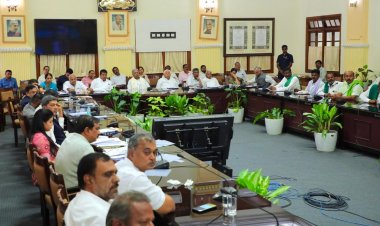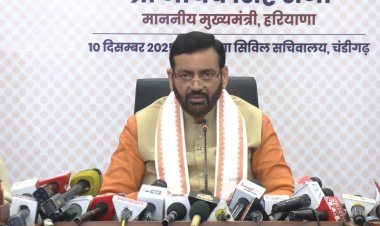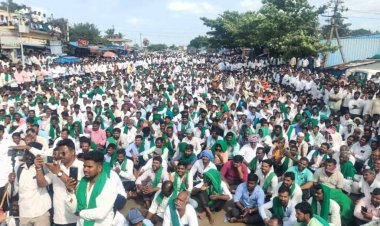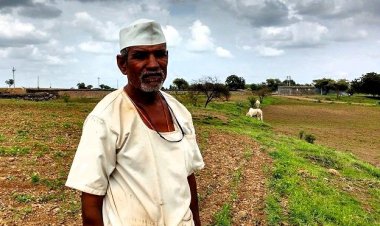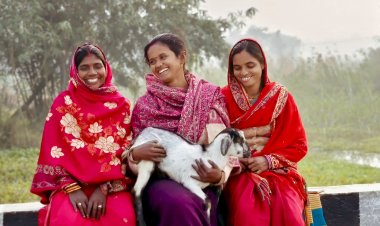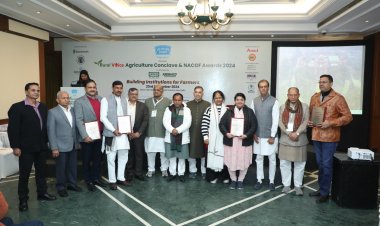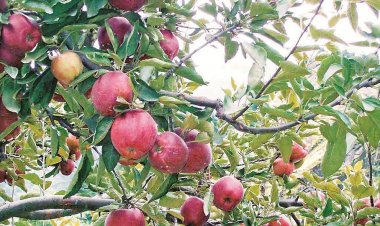Haryana makes DBT to farmers possible amid Covid challenges
“In 30 days, 83.51 lakh mt wheat arrived, 80.37 lakh mt was procured, and 4.99 lakh farmers got Rs 9,270 crore in their bank accounts.” — JP Dalal, Agriculture Minister

Anuradha from Chandigarh
Jai Parkash Dalal, the Minister for Agriculture and Farmers Welfare in Haryana, has said that amid Covid rapid spending challenges, Haryana is at the forefront. While following the Covid protocol, the procurement of wheat is also in full swing at the mandis. Haryana has always been at the forefront of pioneering models of governance and implementing them. He said, “Chief Minister Shri Manohar Lal ji has always stressed the utmost importance of reaching every policy’s full benefit to the targeted beneficiary. Under his leadership, the state government has documented and digitized all farmer families through the revolutionary Parivar Pehchan Patra, which ensures that the payment towards crop procurement directly reaches Haryana’s farmers.”
The Minister said, “Doubling farmers’ income is the stated goal set by our leader Prime Minister Narendra Modi ji. Our pioneering system of direct farmer payments is the very core of making his vision work at the ground level.” Making the direct benefit transfer (DBT) possible is Haryana’s successful digitization of agricultural land records, and linking with the digital identity and bank accounts of individual farmers. The digitized agricultural land record also gives the detail of the crop planted in each season. Now, every farmer registers himself on “Meri Fasal Mera Beyora” to sell his produce in the mandis. All these details are automatically linked and cross-verified through a seamless process.
JP Dalal explained how this has resulted in the saving of time. “This has helped cut not just the waiting time for selling the produce but more importantly cut the total time for giving payments to farmers, after issuing the ‘I-form’, to just under 72 hours. This is a great improvement from earlier when the farmer would get payments from the arhatiya in weeks. More importantly, the relationship between the farmer (seller) and the government (buyer) could not be formally established. Now it formally exists on a digital channel.”
The new mechanism is benefiting the farmers and the arhatiyas both. Says Dalal, “If there is any delay in the payment of this money to farmers, the state government is paying an interest of 9 per cent on the delayed time. There are about 11,000 farmers whose payments have been delayed by one day after issuing the ‘I-form’ to just under 72 hours. Therefore, the state government has given an amount of Rs 20 lakh as an interest to these farmers. It is not just the farmers who benefit from the direct payment; even the arhatiya’s commission is being paid directly into his account without delay. This is expected to improve the cash flow of the arhatiyas and they do not have to worry endlessly about their commission.”
According to JP Dalal, Haryana was earlier expecting around 80 lakh metric tonnes (mt) of wheat in this Rabi season. 83.51 lakh mt has already arrived in the mandis within 30 days of procurement, 80.37 lakh mt has been procured and until 30th April a total of Rs 9,270 crore has been paid directly to 4.99 lakh farmers’ bank accounts. “Such quick reimbursement has never happened before; this has convinced Haryana’s farmers about our government’s commitment towards improving their overall welfare. This all-time high procurement of wheat is beyond expectations.”
As the process is in full swing till the 15th of May, the Agriculture and Farmers Welfare Minister says, the procurement may cross 90 lakh mt this year. 87 lakh mt of wheat was procured by government agencies in Rabi season 2019 and 74 lakh mt in Rabi season 2020. “Besides the digitization of the identity and registration of farmers, the responsibility of procuring Rabi crop this season has been given to the Deputy Commissioner (DC) in each district. As a result, the whole process is being conducted at the ground level in a far more efficient manner than ever before.”
Dalal says that he has been visiting a couple of mandis every day since the Rabi procurement season started on April 1. “This season will see the fastest crop-procurement-to-payment in the history of India. Due to the delegation of the procurement to the DC in a district, the scheduling and logistics of entry, weighing, bagging and lifting of the grain to the godown is also going on smoothly. The farmer no longer has to wait for weeks at the mandis to get his crop weighed and bagged. Now the mandis are no longer crowded or overwhelmed with the crop. The crop is being quickly lifted and transported as soon as it is bagged. This is a massive operation involving thousands of trucks and several thousand people. With the DC at the helm, it is progressing smoothly across Haryana.”
Elaborating on the long-term benefit of DBT to farmers’ procurement, the Agriculture minister stated that these improvements will drastically raise farmers’ incomes in the future. “The digitization of procurement payments will give us the data to understand the problems related to farmers’ land holding, land productivity and actual incomes at a granular level. The problem is not the same everywhere; in agriculture, one-size-fits-all does not work. Our system will allow us to customize our proposed solutions to fit the unique needs of every individual farmer.”
The Agriculture Minister said that an important component of the Meri Fasal Mera Beyora portal is the data on the productivity of each farmer and his land. This is the most crucial part of the problem. Until now, our agricultural scientists had been suggesting generic solutions to each farmer such as “add more manure” or “do drip irrigation.” The productivity data for each crop can be analyzed, and specific customized solutions can be provided to each farmer. “This will help us reach our goal of doubling farmers’ income in a few years.”



 Join the RuralVoice whatsapp group
Join the RuralVoice whatsapp group

















